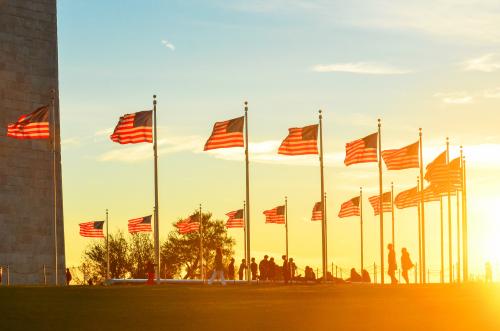Executive Summary
Afghanistan is a context where individuals have to cope with the most adverse of circumstances. In this paper, we use the tools provided by a new approach in economics, which relies on surveys of happiness or reported well-being, to deepen our understanding of the situation there. These tools also provide a window into public attitudes, ranging from opinions about democracy and political freedom, to trust in others and in public institutions, to concerns about crime and corruption. The paper is written with the objective of bringing new insights to bear on a complex situation; neither author claims to be an expert on the economics or politics of Afghanistan. The details of the situation there have been addressed comprehensively elsewhere, including by some of our Brookings colleagues.1
Our results in Afghanistan conform to a world-wide pattern: remarkable consistency across individuals in the determinants of happiness within countries of all different development levels—even in the midst of extreme circumstances.2 Average happiness scores in Afghanistan are higher than the world average and on par for those from Latin America, for example, which is a region that is by most measures much more stable and prosperous. At the same time, relatively high average happiness scores are balanced by much lower scores on a best possible life question. The latter asks respondents to rank their life compared to the best possible life they can imagine, which introduces a relative component. The differences in the responses on these two questions suggests that Afghans may be naturally cheerful and/or may have adapted their expectations downwards in the face of adversity, yet at the same time are more realistic—or pessimistic—when thinking about their situation in relative terms.
We also find evidence of adaptation to high levels of crime and corruption; unlike most other places where we have studied happiness, being a victim of crime or corruption in Afghanistan does not result in a decline in reported well-being, suggesting that individuals have come to expect such events as the norm. While adaptation may be a good thing—or perhaps even a survival strategy—from an individual happiness perspective, it may be bad for welfare in the aggregate, as it results in a collective tolerance for bad equilibrium, such as high levels of crime and corruption.
Satisfaction with democracy, preference for democracy, and freedom of expression were positively correlated with happiness, suggesting resilient preferences for political freedom in the most difficult of environments. It is possible that people value democracy and political freedom more when those freedoms are under threat. These preferences for political freedom coexist with high levels of skepticism about public institutions, particularly among elites. Our findings on tolerance for tax evasion—which is higher among the more educated— and trust in the army—which is lower among the more educated—support such an interpretation.
Notably, we find differences in that happiness levels are significantly higher in areas with more Taliban presence than in the rest of our sample. The results are driven by Pashtun respondents in those areas, and the Pashtun are typically more supportive of the Taliban than are other groups. There are other unobservable differences across provinces that could explain the variance in happiness levels. One plausible explanation for the happiness differences is that crime and corruption levels are lower in those areas. Another is that people are just naturally more cheerful (and also more religious) in those southern/eastern sections of the country. The latent optimism among these respondents is difficult to explain but important to understand.
It is also important to note that our survey did not sample respondents in conflict zones or in those places completely dominated by the Taliban, and that our findings in those areas could be very different. Most opinion surveys, for example, find an overall lack of support for the Taliban.
While we cannot attribute the happiness and other differences to the Taliban per se, they are worth noting and are of relevance to policy going forward. There is something about these areas that results in people being more satisfied with their lives and with democracy, and less tolerant of crime, corruption, and tax evasion. Better understanding the dynamics underlying those differences in attitudes could be important to building up social cohesion and support for a peaceful and democratic government going forward.
Our findings on trust have implications for policy. There are generally low levels of trust in public institutions and in the average citizen. Skepticism of public institutions among the educated coexists with higher than average faith in the armed forces and international security forces among those with less education but more assets to protect, as well as lower than average citizen trust. Re-establishing more generalized social trust and trust in public institutions will be critical to the difficult challenge of sustainable democratic governance. While that is surely a difficult task, the resilient preferences for political freedom that we find are a very positive sign and a base upon which to begin to build that broader trust.


